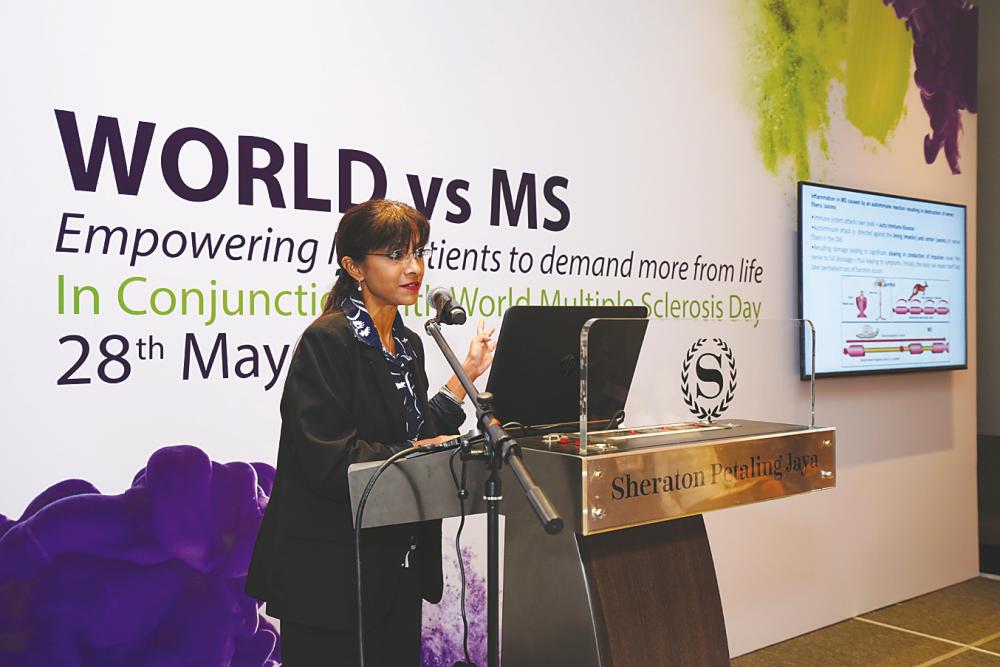IN conjunction with the World MS Day, Sanofi is launching “World vs MS”, an initiative to raise awareness around multiple sclerosis (MS), as well as to empower the patients to demand for a better quality of life through the right treatment options and education.
MS is a chronic autoimmune, inflammatory neurological disease of the central nervous system. The immune system attacks myelin, which is the protective layer around nerve fibres.
This causes inflammation and scar tissue, making it hard for the brain to send signals to the rest of the body. MS over a period of time leads to brain degeneration, which leads to mental impairment and physical disability.
Affecting about 2.5 million people worldwide, MS impacts 767 Malaysians, of which 59.4% were Malay, 20.5% Indian, 16.6% Chinese and 3.5% were from indigenous group. MS is more common in women than in men.
In fact, women are five times more likely to get MS compared to men. Most people experience the onset of symptoms between the ages of 19.1 and 38.95.
“Many MS patients are misdiagnosed as some of the signs can be vague or similar to other conditions. It is important to monitor and describe the types and patterns of symptoms in detail to your doctor or neurologist,” stated Dr Shanthi Viswanathan, Consultant Neurologist of Hospital Kuala Lumpur.
“If you are diagnosed with MS, research and discuss the treatment options with your doctor. Current evidence suggests that early recognition and treatment with disease modifying treatments (DMT) is important to avoid relapses and disability progression that significantly impacts patient’s quality of life.”
Symptoms of MS are unpredictable and vary greatly from person to person, and from time to time in the same person.
Some of the common symptoms include numbness, tingling, abnormal sensation, weakness, mobility problems, vertigo, visual problems and pain ranging from mild to severe. MS could also impact a person’s emotions, causing emotional instability, in particular clinical depression, anxiety, adjustment disorders, bipolar disorders and psychosis.
For MS patients, it is imperative for them to learn about the disease and talk to their healthcare provider if they are not tolerating the side effects well, experiencing relapses, noticing worsening symptoms and changes in physical abilities.
Patients are encouraged to adhere to their treatment and if they notice worsening of their disease pattern, work with the doctor on alternative treatment options.
It is important to combine medication with active lifestyle and diet to manage MS comorbidities and symptoms.













